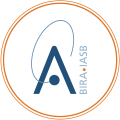The Royal Belgian Institute for Space Aeronomy (BIRA-IASB) will provide an instrument – VenSpec-H – to the future M5 mission of the European Space Agency, which has just been selected. Following the recent selection of two exploration missions to Venus by NASA, ESA has indeed announced its choice for the next M-class mission.
Venus is often described as the nightmarish little sister of Earth: Venus is of similar size but has a CO2-rich atmosphere with sulfuric acid clouds, with extreme temperature and pressure conditions at its surface (450°C and 90 times the atmospheric pressure of Earth).
The VenSpec-H instrument will observe the atmosphere of Venus in the infrared to measure the abundances of trace gases like water vapor, carbon monoxide or sulphur dioxide, which could be related to volcanism or to other surface processes. VenSpec-H is part of the spectrometer suite VenSpec, which will sound the atmosphere from the surface to up above the clouds. These three instruments will allow us to investigate the relationship between the surface changes and the atmosphere, as well as its evolution.
The Royal Belgian Institute for Space Aeronomy has a long history in Venus exploration, having delivered the SOIR instrument to the Venus Express mission. VenSpec-H will be built in close collaboration with OIP (Oudenaarde) and with an international consortium composed of researchers and industries from The Netherlands, Spain, Switzerland and Portugal.
The EnVision mission will be launched in 2031-2032 and will take 15 months to reach Venus. After several months of aerobraking, the orbiter will be placed in a circular orbit around the planet and will then start its scientific observations. EnVision will also carry a synthetic aperture radar (SAR) contributed by NASA, and a subsurface radar sounder.
For more information on the mission: www.envisionvenus.eu

Contact
Dr. Ann Carine Vandaele
BIRA-IASB Research group “Planetary Atmospheres”
VenSpec-H Principal Investigator
E-mail : a-c (dot) vandaele (at) aeronomie (dot) be
Dr. Séverine Robert
BIRA-IASB Research group “Planetary Atmospheres”
VenSpec-H Instrument Scientist
E-mail : severine (dot) robert (at) aeronomie (dot) be
Acknowledgments
BIRA-IASB wants to acknowledge the support of BELSPO (Belgian Science Policy Office) to the mission and in particular to the VenSpec-H instrument.
©NASA/JAXA/ISAS/DARTS/Damia Bouic/VR2Planets



